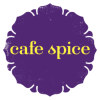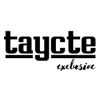Kind developed into a billion-dollar powerhouse in the snacking bar category by winning over shoppers looking to eat healthier and consume more of their food on the go. Now, the 16-year-old company is betting that its success can be replicated in other areas of the store such as frozen and refrigerated where competition is fierce and public acceptance of new products is anything but certain.
"This is really our first push in trying to take Kind to new consumers and in new aisles for new occasions," Mike Barkley, Kind's CEO, told Food Dive. "This is most decidedly our biggest expansion. We're moving into four new categories all at one time, which is obviously a big bet."
The nationwide rollouts at most major retailers, which starts this month, include offerings in frozen, refrigerated, chocolate and snack mixes.
Its Kind Bark, which comes in three offerings — dark chocolate combined with almonds and sea salt; roasted peanuts; or almonds and salted caramel — bring the company into the confectionary aisle. Most retailers will choose to shelve Kind Bark in the chocolate section, the company said. Kind first tested the product at select retailers like Sprouts Farmers Market in 2019.
"This is most decidedly our biggest expansion. We're moving into four new categories all at one time which is obviously a big bet."

Mike Barkley
Kind's CEO
Kind also is offering its first-ever nut butter protein bar to be sold in the refrigerated section of the store. It will enter the snack mix aisle with Kind Clusters, a hand-to-mouth version of its bars made with almonds and either fruits or seeds such as cranberries, pumpkin seeds or sunflower seeds.
The company's final product line comes in frozen where it will sell bars made from nutrient-dense nuts and layered with dark chocolate and nut butter. Kind first sold one variety of its frozen product — Dark Chocolate Almond Sea Salt — last year exclusively at Walmart. It's adding a second in Dark Chocolate Peanut Butter as it expands frozen to other retailers.
'Certainly no guarantee'
The decision to forge ahead nationally with these products all at once was made possible by its acquisition of Creative Snacks in 2019, an investment Kind received from Mars, which took a minority stake three years ago, and innovation at the snack maker itself, Barkley said.
In the case of Creative, Kind could tap into the North Carolina company's innovation prowess and production capabilities to assist it in producing the snack mixes. Mars, which already had expertise in frozen foods and confections, helped develop the new products, improved sales prospects by tapping into its existing partnerships with retailers and worked with Kind on distribution — a process that became more challenging as Kind must now ship frozen and chilled products along with shelf-stable fare it was used to.
Barkley, a CPG veteran with prior roles at Pinnacle Foods, PepsiCo and Campbell Soup, said the expansion taps into some of the same attributes that have made Kind a dominant player in bars. It has long prided itself as a company that "closes the nutrition gap" in a category tied with indulgence. Kind then disrupts the space by rolling out products that use a nutrient-dense first ingredient such as nuts and a minimum amount of added sugar, among other attributes popular with today's consumer, to make them healthier.

"With innovation, there is certainly no guarantee," Barkley said. "But I think the combination of what consumers have come to expect from any Kind product, the Kind promise, the trust they have in the Kind brand and third, the capabilities of our partners ... I think those three things add up to a very high likelihood of success."
It won't be easy. The products will run up against a crowded marketplace where similar offerings from larger CPG companies already exist. Its Kind Bark, for example, will find itself competing with brands such as Hershey's BarkThins, while its refrigerated product will go up against Mondelez International's Perfect Snacks, the manufacturer of organic, non-GMO, nut butter-based protein bars and bites. Several snack mixes already are available in the market, too.
Kind has one major advantage that many of its large CPG competitors don't have: it doesn't have to answer to shareholders. This allows Kind, Barkley said, to take a longer-term view rather than needing the launches to become instant hits right away.
"We're able to nurture anything that we launch as new product platforms over several years," he said. "This is not a one-year shot. This is a multi-year building of great new snacking platforms."
Kind's product launches come after a challenging second-half of 2019 for the company.
In September, it announced it would pull its fruit bites off retail shelves after two years on the market. The fruit snack, made without synthetic dyes, struggled to attract kids who were used to fluorescent colored snacks and food that tastes sweet. A month later, Kind said it would lay off 90 of its roughly 600 employees — about 15% of its workforce — to better position it to manage key accounts, expand its retail coverage and attract new consumers to the brand.
"All great companies, all great brands evolve. ... Certainly 2019 was a year where we evolved a fair amount," Barkley confessed.
Still, he said Kind 2.0, as the company has coined the product launches, brings the company one step closer to moving its billion-dollar snack bar business into something bigger.
"I fully believe we are just getting started. There is absolutely no reason that Kind can't become a global healthy snacking powerhouse. What a great ride it's been so far, but we still have a lot of runway. [These new products are] going to be a nice big step on that journey."























